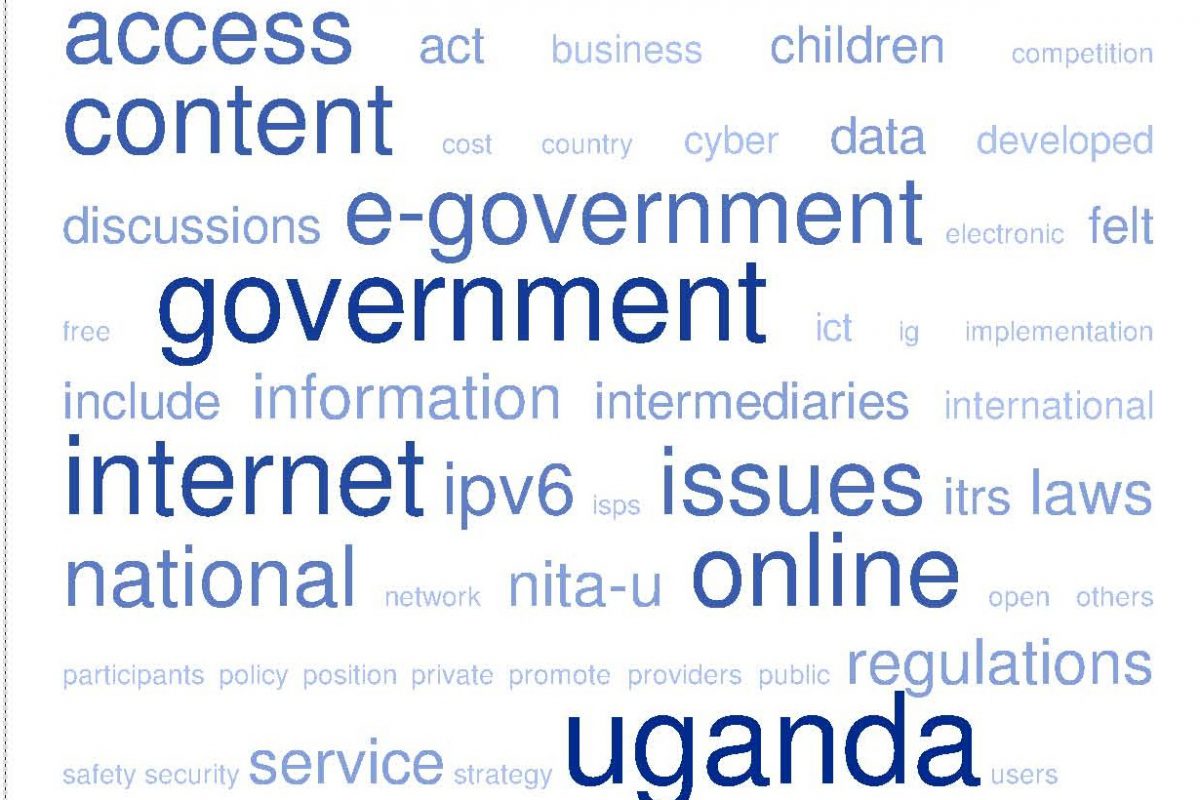Towards the end of 2014, Uganda’s government through the National Information Technology Authority (NITA-U), Ministry of Information Communication and Technology (MoICT) and the Ministry of Justice and Constitutional Affairs (MOJCA) issued a draft Data Protection and Privacy Bill for public comment. The Bill seeks to protect the privacy of the individual and personal data by regulating the collection and processing of personal information. It provides for the rights of persons whose data is collected and the obligations of data collectors and data processors; and regulates the use or disclosure of personal information.
The Collaboration on International ICT Policy in East and Southern Africa (CIPESA) welcomes the move by the Uganda Government, however, following an analysis of the Bill, we identified some areas of concern and gaps that need to be addressed. We have assembled our comments as part of the CIPESA ICT briefing series and have also submitted official comments to the government as part of the public comments phase.
Read more on our Reflections on Uganda’s Draft Data Protection and Privacy Bill, 2014 in the CIPESA ICT Briefing series and see our Formal Comments Submitted for consideration.
Q&A: Uganda Government Develops Social Media Guidelines
The internet and indeed social media plays a key role in improving communication between citizens, government-to-government interactions and at government-to-citizen level. Social media, such as Facebook, Twitter, YouTube, Instagram and MySpace, has the potential to improve governance and democracy practices.
Accordingly, the Uganda government through the National Information Technology Authority Uganda (NITA-U) has developed guidelines to “to facilitate secure usage of social media (Facebook and Twitter etc.) for efficient exchange of information across Government Ministries, Departments and Agencies (MDAs) as well as improving effectiveness of communication, sharing of information and open engagement and discussions with the public.”
On November 28, 2013 Leonah Mbonimpa, the Corporate Communications Officer at NITA-U spoke to CIPESA about the thinking behind the guidelines.
Q. What is the background to developing these guidelines?
A. Government has decided to utilise new channels to communication such as social media to communicate to citizens and give timely responses to emerging issues. In this vein, NITA-U was requested to develop guidelines to help government agencies to embrace social media while maintaining the same level of decorum as with traditional media.
Q. Why did the government find it necessary to draw up these guidelines?
A. Traditionally, Government agencies have been communicating through accounting officers such as Permanent Secretaries. The advent of new media channels and the quest for speedy provision of information has necessitated the shift from traditional approaches to more flexible ways of communicating, [such as] using social media. Given that social media is relatively new and comes with a higher degree of responsibility when communicating, it was necessary to provide guidelines for government agencies to ensure that we communicate [appropriately].
Q. What do the guidelines intend to achieve?
A. They intend to achieve uniformity in communicating and ensure appropriate consultation is made before posting government communication online.
Q. How is users’ privacy protected in these guidelines?
A. The guidelines do not infringe on user privacy. They only seek to standardise the government’s approach to communicating to citizens online.
Q. Are there other initiatives in place or under development by government to protect freedom of expression and privacy online.
A. NITA-U is in preparatory stages of drafting a Data Privacy bill which will eventually be enacted into law to comprehensively address privacy issues.
Further details about the guidelines are available here http://www.nita.go.ug/index.php/features/315-socialmediguide
2012 Uganda National IGF Report
 The report of the 5th Uganda Internet Governance Forum organised by the Collaboration on International ICT Policy for East and Southern Africa (CIPESA) in conjuction with the Uganda National Information Technology Authority – Uganda (NITA-U) and the Internet Society Chapter Uganda is available for download here.
The report of the 5th Uganda Internet Governance Forum organised by the Collaboration on International ICT Policy for East and Southern Africa (CIPESA) in conjuction with the Uganda National Information Technology Authority – Uganda (NITA-U) and the Internet Society Chapter Uganda is available for download here.



